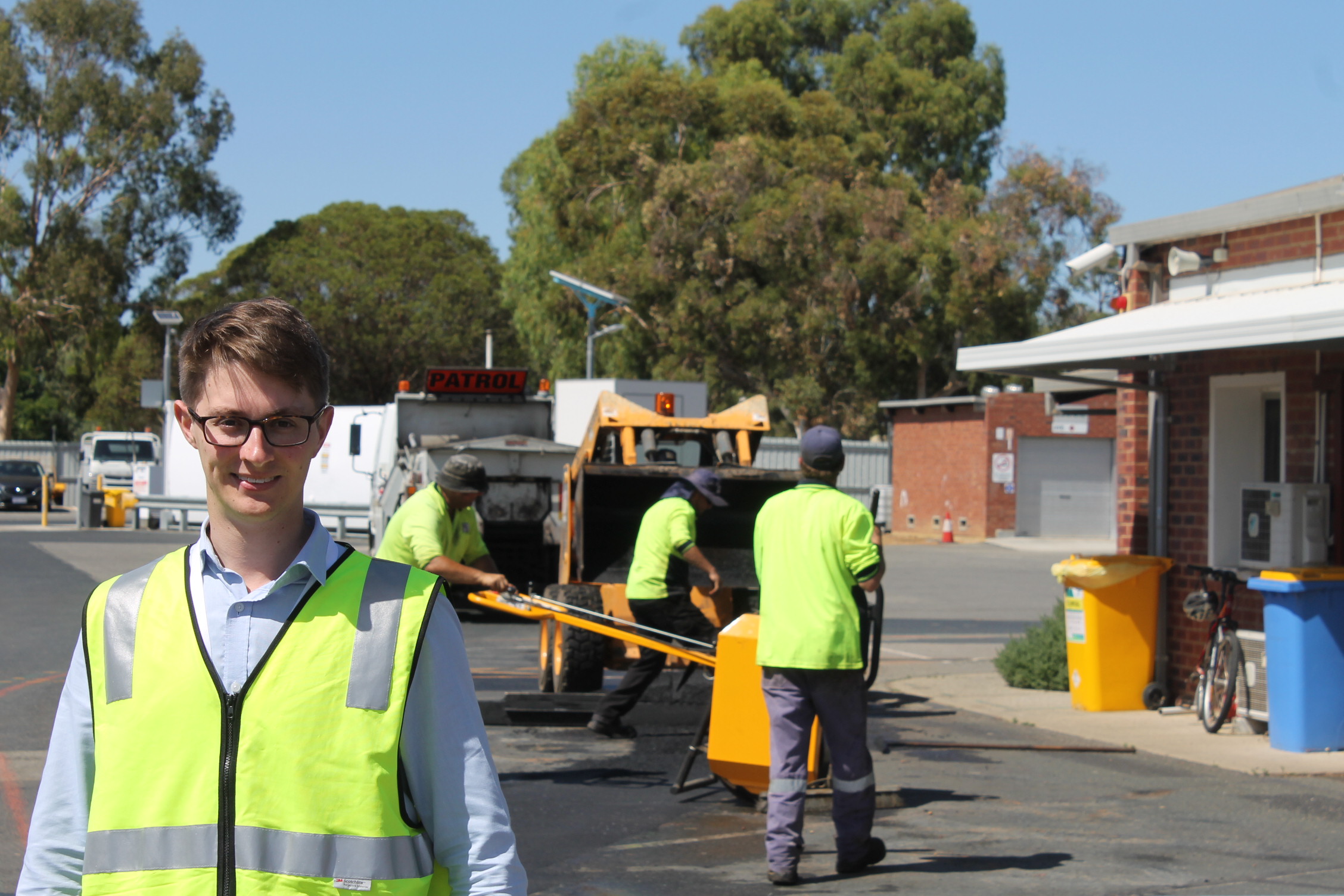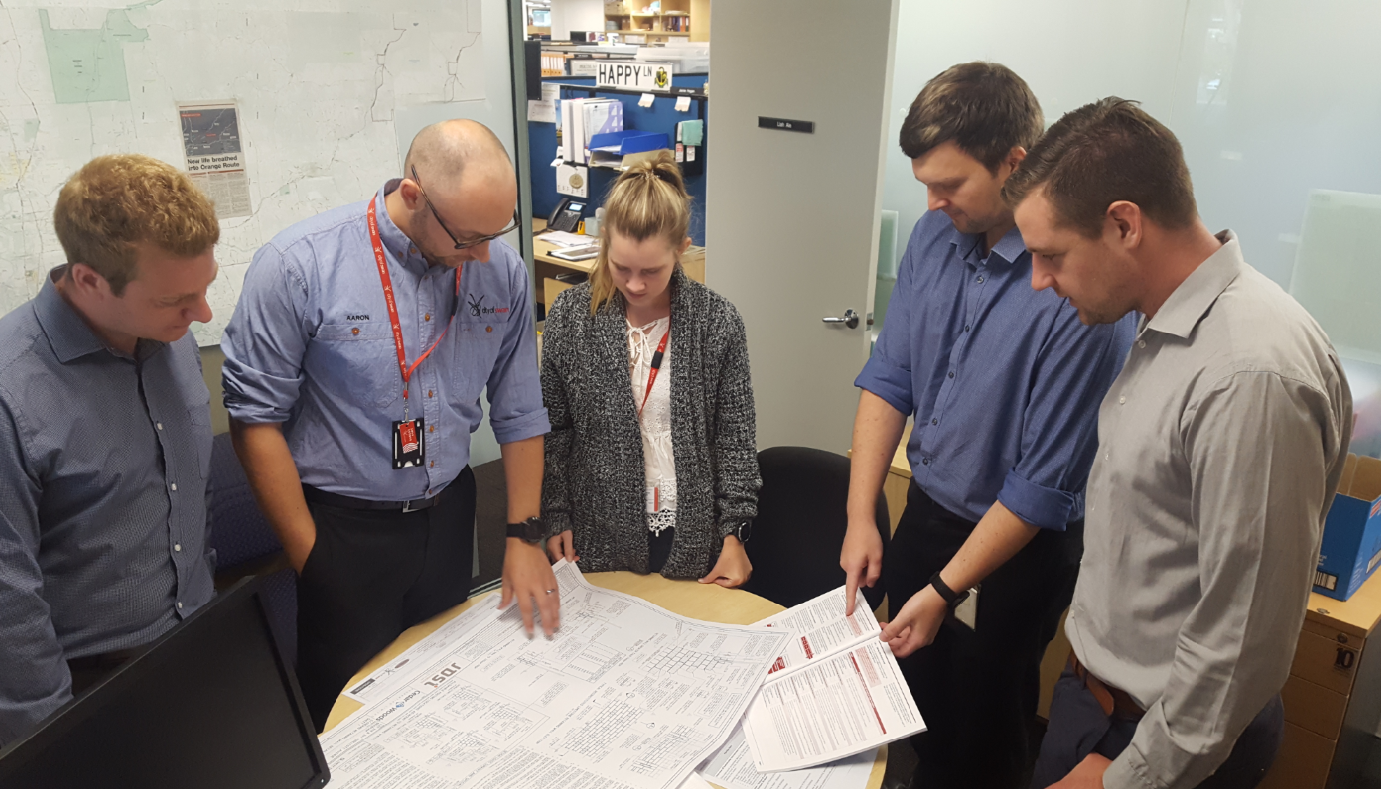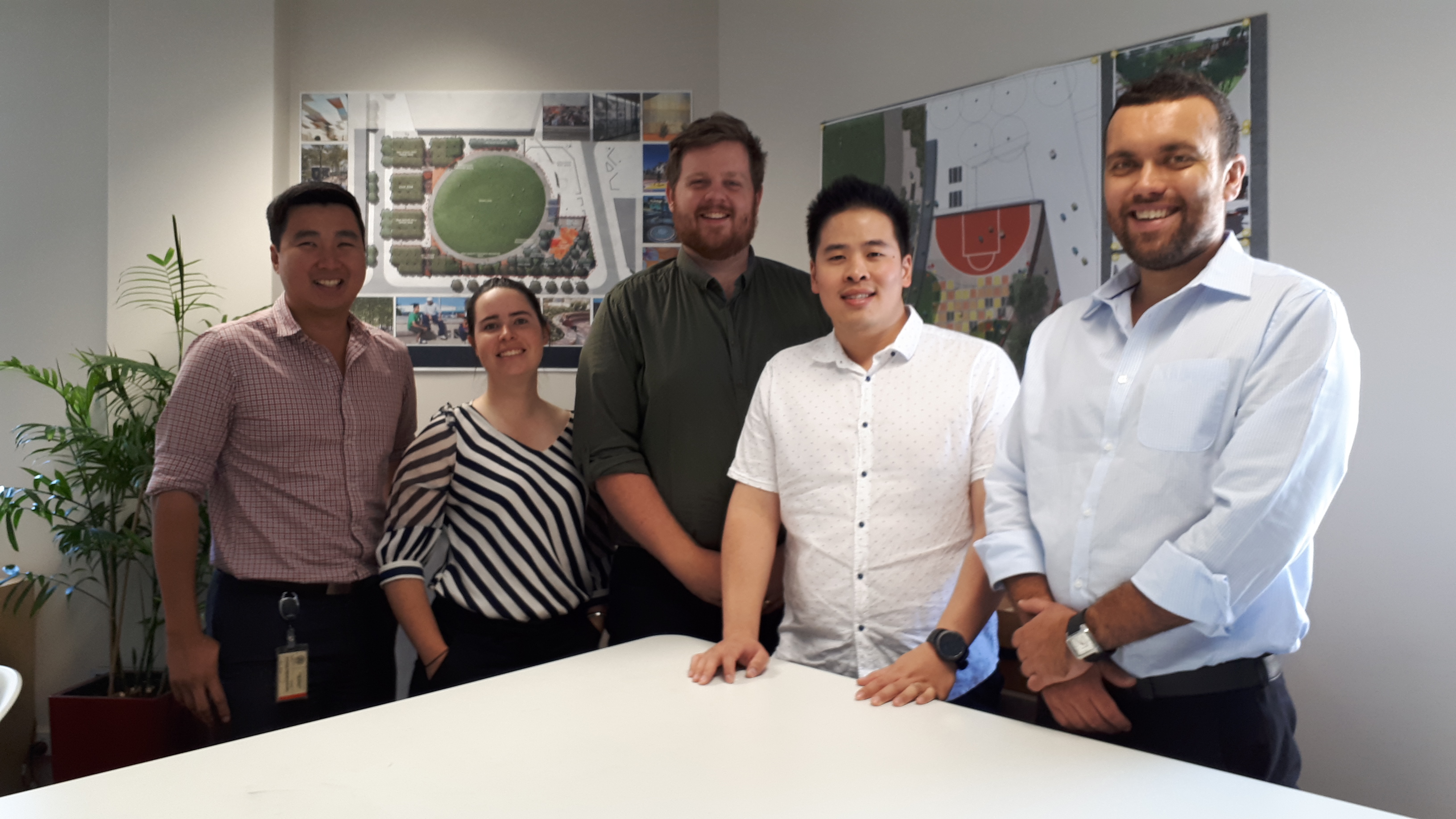When Jim Coten became Executive Manager Operations at the City of Swan in 2007, he came to a disturbing realisation.
 City of Swan graduate engineer John Drake.
City of Swan graduate engineer John Drake.
“I was doing some workforce planning, and one thing that stood out was the lack of engineers, but also the lack of young engineers,” he tells
intouch.
The average age of the City’s five engineers was 55, and the average age of retirement for engineers is 62.
“When we actually projected the age profile forward 10 years, and if you assume the average retirement age of an engineer is 62, I would have been the only engineer left. This was very frightening and we knew we had to do something,” Coten says.
In the same year, Coten attended an IPWEA conference and heard more bad news: 70% of local government engineers were expected to retire within 15 years
There were also other factors at play, not the least of which was that the small talent pool of engineers available locally meant councils were poaching from each other and engaging in bidding wars.
“Plus, over the years there’s been a lot of de-engineering in local government and certainly in the City of Swan,” Coten says.
The City of Swan was also experiencing a period of massive urban growth.
“The replacement value of our assets now is $2.6 billion; it is very complex infrastructure and work that we’re doing. We recognised that we did need to do something about it,” Coten says.
And so, after consulting with other organisations offering similar programs, the City of Swan’s graduate program was born. Coten says although it started slowly with two graduate positions, enthusiastic support from the CEO (himself an engineer) and other managers has seen the program become a key part of the City’s hiring strategy.
“In time as people saw the benefit of it, we had a lot of technical officer positions and when somebody left those we replaced them with a graduate,” he says.
“It was a deliberate effort to target graduates to build up our engineering expertise.”
There was some push-back from a small number of staff initially, but Coten says some of the program’s biggest detractors quickly became its staunchest supporters.
The average age of the City’s engineers is now 37, and graduates represent eight of the City’s 25-strong professional engineering workforce. Six of the City’s mid-level engineers joined through the graduate program.
Coten even converted his executive assistant position to a graduate engineer position, which dramatically reduces the amount of technical enquires he is required to address.
More than a decade after the program began, each graduate vacancy now attracts between 200 and 300 applications – a clear sign that the council’s model is working.
Only the best will do

Central to the program’s success is Coten’s determination to only accept the best engineers.
“Local government people say to ourselves that we can’t compete with the big companies, but we’ve deliberately gone out and we target the best engineers. We don’t see ourselves so much competing with other local governments for talent, as competing with Woodside, Chevron and Rio Tinto,” he says.
“We’re actively looking for the best and we’re not scared to say we are competing with them.
“We’re not going to be able to compete on every level, but we have a lot of competitive edge in terms of being able to offer good work/life balance, some really intrinsically satisfying work that benefits the community, no fly in-fly out, and good career paths.”
Coten says he spends a lot of his time sitting on recruitment panels.
“People ask, ‘Haven’t you got better things to do than sit on an interview panel for a junior graduate?’, but I think one of my most important roles is getting good people into the organisation and developing them,” he says.
“You can’t look after the infrastructure unless you’ve got good people to do it.”
Coten takes the view that even if a graduate leaves for another council, it’s still a positive result for the industry.
“What we’ve focused on is trying to increase the volume of the talent pool, so there’s more good people in local government,” he says.
“We’ve seeing the benefits for broader local governent; one of our graduates went straight from our program to a director’s job in a country town and he’s only in his mid to late 20s which is fantastic, and another is a manager at the City of Fremantle,”
“A number have gone off for good jobs in the private sector, and that’s ok, we understand that, but all of them say that they’ll look at coming back to local government down the track when they’ve got some private sector experience.”
Getting the messaging right

Coten says when he and his team spoke to university students, most had never considered local government as a career.
“It was almost the career of last resort. But the interesting thing is when they come in here, they see how fantastic it is. We employ them and they start talking to their mates, and we’ve had a lot of people applying through referrals, saying ‘I know such-and-such here, and they told me what a great career local government is’,” Coten says.
The variety of experience on offer has been the program’s key selling point.
“The things we found really appealed to young graduates is they want to get good experience and they want to build up a good CV. They can come to us and get experience in a variety of areas, and we find that really attracts people,” Coten says.
Graduates spend six to 12 months on each rotation throughout the various business units, gaining experience in construction, maintenance, project management, design, asset management, subdivisional engineering, facility management, fleet management, waste and recycling, traffic engineering, tender administration and contract management.
“Some have said they were only going to be here for a couple of years and then get a real job, but now they want to make a career in local government. You’ve got to attract them in the door, and once they’re in here they see how fantastic it is,” Coten says.
“We give them real work from day one where they can see the outcomes. We give them responsibility above what they would get in other organisations, and we sometimes give them multi-million dollar contracts to run from day one.”
Why aren’t more local government grad programs available?
Coten got his own start in public works through a Water Corporation graduate program. But, it seems that less and less graduate programs are becoming available in local government.
“People view it as a cost rather than a benefit, which isn’t true at all. Yes there’s a little bit of short-term pain, but the long-term gain certainly outweighs it. I think it’s just a misconception that it’s an expense rather than a cost saving,” Coten says.
“It’s not an easy journey but it’s certainly worth it. When you see the benefits not just to your own authority but also the industry as well, when we’re advertising for a senior position we might have five people shortlisted and almost without exception three or four of them will be our internal graduates.
“I just think, if every local government had that, imagine the calibre of applicants we’d be getting. It’d be fantastic for the industry if everyone had graduate programs.”
City of Swan’s lessons for a successful grad program
- Have the Executive Manager on the selection panel.
- Promote the opportunties local government can offer: a wide variety of experiences, work/life balance, the opportunity to positively impact the community.
- Look for applicants that are well-rounded and demonstrate high academic achievement at school and university, have strong written and verbal communication skills, hold leadership roles at school and university, are active in the community and sports clubs, and demonstrate a desire to improve the community’s quality of life.
- Rotate graduates through all the engineering business units, spending 6-12 months in each.
- Allocate each graduate a mentor and establish regular mentor-mentee catchups.
- View graduates who leave as a positive – it increases the overall talent pool.
- Needs to be driven from the top with CEO and council support.
For more information on City of Swan’s graduate engineer program, you can contact Jim Coten at jim.coten@swan.wa.gov.au.